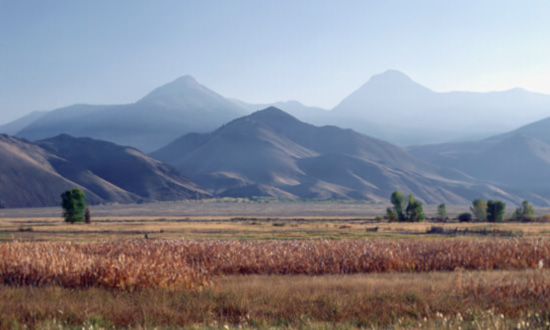Habitat Improvement Program
Habitat holds the key to the future of upland game and waterfowl in Idaho. Creating and improving habitat is the goal of Idaho Fish and Game's Habitat Improvement Program (HIP).
The HIP objective is to provide technical and financial assistance to private landowners and public land managers who want to enhance upland game bird and waterfowl habitat.
Landowner interest in creating or enhancing game bird habitat remains strong today and the HIP program can help make the difference.
Listed below are examples of types of projects that can benefit upland game birds and waterfowl.
Projects That Are Eligible for HIP
Upland Game Habitat- establish areas of grasses and legumes for nesting cover;
- fencing livestock from woody areas to provide critical winter cover;
- planting farmstead and field windbreaks to provide cover;
- planting winter food plots near existing nesting/winter cover.
Waterfowl Habitat
- planting grasses and legumes for nesting cover;
- managing livestock use of existing cover;
- providing open water spaces in vegetation-choked marshes;
- creating new wetlands;
- restoring drained wetlands.
How To Apply for HIP Funding
Begin by making a request to the habitat biologist at the nearest Fish and Game office. They will assess the potential of lands, plan projects, and help landowners find sources for seeds and seedlings needed for projects.
Costsharing and Partnerships
On approved projects, landowners are generally reimbursed up to 75% of out-of-pocket expenses with a general limit of $10,000 per project. However, limits and percentages may vary for food plot and wetland projects. See the HIP Guidelines for more details.
Funds may also be available for costsharing on HIP habitat projects in partnership with non-profit organizations and federal agencies.
Agreement
All projects are documented in a cooperative agreement and project plan. The agreement usually requires the landowner to maintain the project for a minimum of 10 years. Food plot agreements run only one or two years. An agreement can be terminated at any time if the cooperator returns all cost-share funds. Fee hunting is not allowed on lands under a HIP contract. HIP cost share is not available for shooting preserves.


